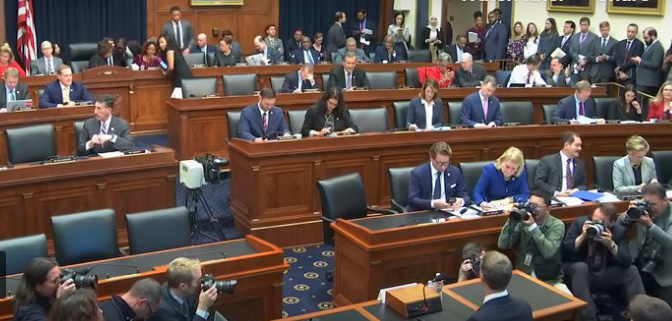
MBA Letter Supports Self-Employed Mortgage Access Legislation

Ahead of an anticipated vote this week in the House Financial Services Committee, the Mortgage Bankers Association yesterday sent a letter of support for legislation that would help ensure fair access to mortgage credit for households with “non-traditional” forms of income.
H.R. 2445, the Self-Employed Mortgage Access Act (https://www.congress.gov/bill/116th-congress/house-bill/2445?s=1&r=1), would help ensure fair mortgage credit access for households with nontraditional forms of income, including the self-employed, “gig economy” workers, retirees and those with rental income. Introduced by Reps Bill Foster, D-Ill., and Tom Emmer, R-Minn., the bill is expected to be offered as an amendment to other legislation under consideration this week by the Financial Services Committee.
In the letter, MBA Senior Vice President of Legislative and Political Affairs Bill Killmer said H.R. 2445 represents a “common sense” response to gaps in public policy that would encourage a more holistic approach to determining sustainable mortgage credit access.
“In short, the bill would allow underwriters to use widely-accepted income verification standards already permitted by the Federal Housing Administration, the Department of Agriculture, the Department of Veterans Affairs and the Federal Housing Finance Agency via the government-sponsored enterprises,” Killmer said. “These government-approved income verification standards provide more flexibility for lenders to document the diverse ways many Americans currently earn a living.”
Further, Killmer said, the bill allows these same verification standards to serve as an acceptable framework for loans that are retained in lender portfolios or securitized in the private label market, thereby expanding access to QM loans. “H.R. 2445 merely expands the use of these established industry methodologies and would allow the broader use of a tested set of avenues for lenders to appropriately serve a larger, more diverse customer base,” he said.
For example, the letter noted, H.R. 2445 would rectify issues in verifying a borrower’s income in the mortgage underwriting process, especially when calculating a borrower’s debt-to-income ratio, which is one of a series of factors that is often considered to gauge a borrower’s capacity to take on new debt.
“Unfortunately, current income verification standards, as embodied in Appendix Q of the Consumer Financial Protection Bureau’s Ability-to-Repay rule, lack the necessary dynanism to keep pace with an ever-evolving labor market and do not fully contemplate the variety of ways a growing number of Americans earn a living,” MBA said. “As a result, Appendix Q unfairly skews in favor of households with more traditional forms of income that are verifiable through the use of Internal Revenue Service Form W-2, while creating unreasonable barriers for other workers with equally reliable and demonstrable income streams. Appendix Q’s shortcomings disproportionately impact those individuals in today’s economy that have found achieving homeownership challenging, including young people, communities of color, and those who rely on the ‘gig economy’ and/or freelancing and independent contracting as their primary sources of income.”
The Committee markup session begins at 2:00 p.m. ET in Rayburn House Office Building room 2128; more information can be found at https://financialservices.house.gov/calendar/?EventTypeID=575&Congress=116.
